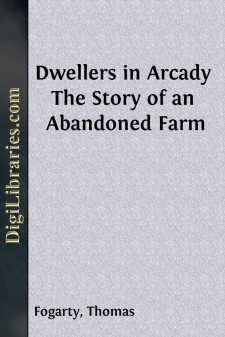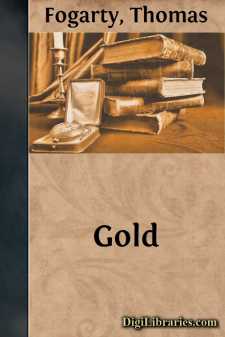Categories
- Antiques & Collectibles 13
- Architecture 36
- Art 48
- Bibles 22
- Biography & Autobiography 813
- Body, Mind & Spirit 142
- Business & Economics 28
- Children's Books 17
- Children's Fiction 14
- Computers 4
- Cooking 94
- Crafts & Hobbies 4
- Drama 346
- Education 46
- Family & Relationships 57
- Fiction 11829
- Games 19
- Gardening 17
- Health & Fitness 34
- History 1377
- House & Home 1
- Humor 147
- Juvenile Fiction 1873
- Juvenile Nonfiction 202
- Language Arts & Disciplines 88
- Law 16
- Literary Collections 686
- Literary Criticism 179
- Mathematics 13
- Medical 41
- Music 40
- Nature 179
- Non-Classifiable 1768
- Performing Arts 7
- Periodicals 1453
- Philosophy 64
- Photography 2
- Poetry 896
- Political Science 203
- Psychology 42
- Reference 154
- Religion 513
- Science 126
- Self-Help 84
- Social Science 81
- Sports & Recreation 34
- Study Aids 3
- Technology & Engineering 59
- Transportation 23
- Travel 463
- True Crime 29
Dwellers in Arcady The Story of an Abandoned Farm
by: Thomas Fogarty
Description:
Excerpt
All my life I had dreamed of owning a brook
ust below the brow of the hill one of the traces broke (it was in the horse-and-wagon days of a dozen years or so ago), and, if our driver had not been a prompt man our adventure might have come to grief when it was scarcely begun. As it was, we climbed on foot to the top, and waited while he went into a poor old wreck of a house to borrow a string for repairs.
We wondered if the house we were going to see would be like this one. It was of no special design and it had never had a period. It was just a house, built out of some one's urgent need and a lean purse. In the fifty years or so of its existence it had warped and lurched and become sway-backed and old—oh, so old and dilapidated—without becoming in the least antique, but just dismal and disreputable—a veritable pariah of architecture. We thought this too bad, for the situation, with its view down a little valley and in the distance the hazy hills, was the sort of thing that, common as it is in Connecticut, never loses its charm. Never mind, we said, perhaps "our house" would have a view, too.
But then our trace was mended and we went along—happily, for it was sunny weather and summer-time, and, though parents of a family of three, we were still young enough to find pleasure in novelty and a surprise at every turn. Our driver was not a communicative spirit, but we drew from him that a good many houses were empty in this part—"people dead or gone away, and city folks not begun to come yet"—he didn't know why, for it was handy enough to town—sixty miles by train—and a nice-enough country, and healthy—just overlooked, he guessed.
We agreed readily with this view; we were passing, just then, along a deep gorge that had a romantic, even dangerous, aspect; we descended to a pretty valley by a road so crooked that twice it nearly crossed itself; we followed up a clear, foaming little river to a place where there was a mill and a waterfall, also an old-fashioned white house surrounded by trees. Just there we crossed a bridge and our driver pulled up.
"The man you came to see lives here," he said. "The house is ahead, up the next hill."
"The man" must have seen us coming, for the door opened and he came through the trees, a youngish, capable-looking person who said he was the same to whom we had written—that is to say, Westbury—William C. Westbury, of Brook Ridge, Fairfield County.
Had we suspected then how large a part of our daily economies William C. Westbury was soon to become we should have given him a closer inspection. However, he did not devote himself to us. He appeared to be on terms of old acquaintance with our driver, climbed into the front seat beside him, and lost himself in news from the outlying districts. The telephone had not then reached the countryside, and our driver brought the latest bulletins. The death of a horse in Little Boston, the burning of a barn in Sanfordtown, the elopement of an otherwise estimable lady with a peddler, marked the beginning of our intimacy with the affairs of Brook Ridge....




